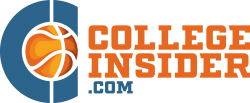College vs. Pro Sports Betting: What's the Real Difference?
In an age where sports betting is rapidly gaining legitimacy across the U.S., a natural question arises: is betting on college sports the same as betting on the pros? The short answer is no—not even close. From legal boundaries to betting enthusiasts using the betway register and everything in between, the differences between the two are substantial. And if you’re on a site like CollegeInsider.com, chances are you care about what makes college sports so uniquely different.
Regulation: The College Betting Tightrope
Let’s start with the legal stuff. College sports betting is legal in many states, but with far more restrictions than professional leagues. Some states allow bets on NCAA games but prohibit wagers on in-state teams or events held within state borders. Others go further, banning all college player prop bets due to the vulnerability of student-athletes to pressure or influence.
In contrast, betting on the NFL, NBA, or MLB is far more liberal. You can place wagers on nearly every detail—from total yards in a game to how many three-pointers a player hits. That level of granularity? Not usually permitted in the college scene.
Transparency and Information Gaps
Betting thrives on information. The problem? College teams are not required to share injury reports or depth charts the way pro teams are. That makes it much harder for sportsbooks to set accurate lines, and for bettors to make informed picks.
This also opens the door to something sportsbooks fear: insider information. When a key college player skips practice due to illness or injury, that detail might be known only to a handful of people—a coach, a teammate, a roommate. The potential for leaked info is real, which is why some betting markets tread carefully around NCAA action.
Market Size and Betting Volume
Professional leagues dominate in terms of betting volume. The NFL alone commands more betting dollars annually than all NCAA football combined. But don’t count college out: March Madness is consistently one of the top betting events of the year. College football bowl games, rivalry weeks, and conference championships also draw substantial action, even if the average regular-season game flies under the radar.
Player Profiles and Public Perception
There’s also a public sentiment divide. College athletes are, technically, amateurs—many are students first, still learning how to handle pressure and media attention. This creates a layer of ethical complexity for some bettors. Professional athletes, on the other hand, are seen as fair game. They’re paid, media-trained, and built for high-pressure moments. That difference in perception affects how the public bets and how regulators design policy.
The Bottom Line
So, is betting on college sports the same as betting on pro sports? Not at all. It’s a different atmosphere with unique legal, ethical, and logistical constraints. If you're looking to dip into college sports betting, it pays to understand those nuances. You’re not just betting on the game; you’re betting in a space that operates on its own set of rules.
And that, for many, is exactly what makes it so fascinating.


